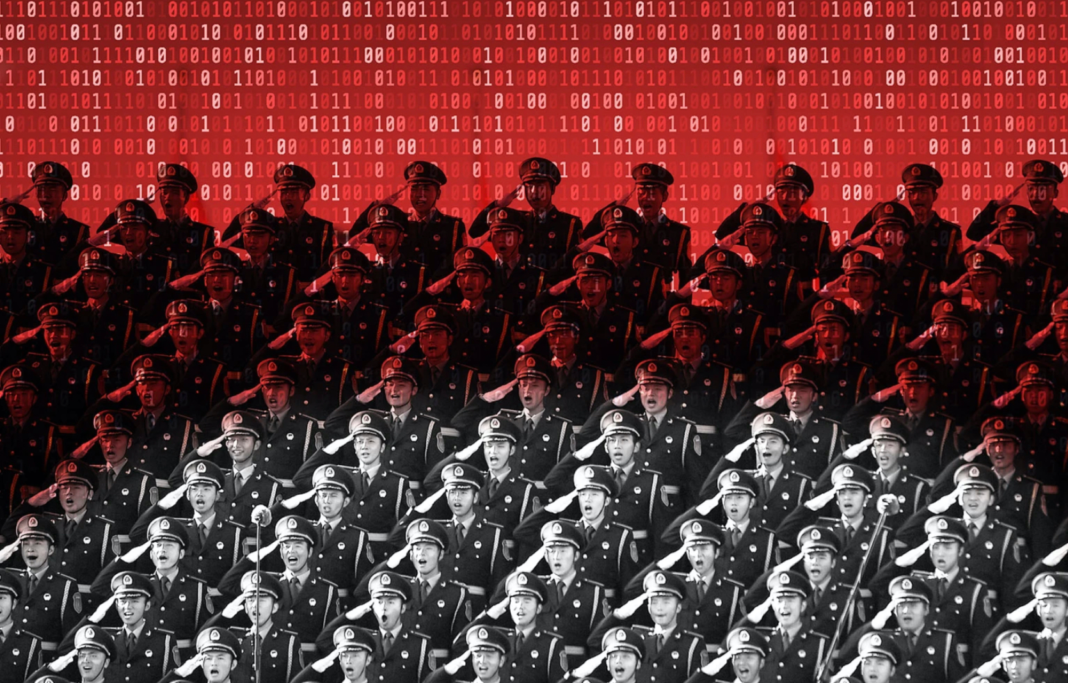Chinese military experts are reportedly exploring “smart deterrence” concepts, marking a significant evolution in China’s use of artificial intelligence (AI) and other emerging technologies from tactical and operational military levels to influence strategic-level decision-making.
This week, South China Morning Post reported that China could become a leader in so-called “intelligent warfare”, drawing on advanced technologies such as AI, cloud computing, big data analytics and cyber offense and defense.
Ni Yongjie, deputy director of the Shanghai Institute of Taiwan Studies, opined in the peer-reviewed journal Cross-Strait Taiwan Studies that China should use AI and other enabling technologies to deter the US and pro-independence factions in Taiwan, in addition to blockade exercises around the self-governing island, the South China Morning Post said.
Ni also wrote that smart deterrence is already being studied in Chinese military circles. He stated that China should normalize military exercises beyond the median line, the de facto sea border separating China from Taiwan, approaching the baselines of the latter’s territorial waters and cutting off maritime transport.
He also says that such exercises would be a powerful deterrent against Taiwan’s independence and foreign intervention, in addition to nuclear and conventional deterrence.
Ni’s suggestion to normalize military exercises off Taiwan aligns with Asia Times’ previous assessment that China has enacted a long-term and flexible strategy for the self-governing island.
This strategy involves periodic military exercises that amount to blockades, with a tighter military noose increasing the threat level. Moreover, it sends the message that any large military exercise could quickly be the real thing – an indefinite blockade of Taiwan to starve it into submission.
Apart from staging military exercises near the baselines of Taiwan’s territorial waters, Ni stated that China should hold similar exercises in the Spratly Islands in the South China Sea and Dongsha Island, which Taiwan controls.
A simulated invasion of Taiwan. Both the US and China would incur heavy losses in a conflict. Image: Facebook
In addition to blockades, Ni called for the use of economic, legal, psychological and cyber tools to deter Taiwan’s pro-independence factions while giving punitive examples of regulating cross-strait trade, stopping imports of agricultural products and halting the two sides’ 2010 free trade agreement.
Smart deterrence adds a cognitive aspect to China’s strategy for Taiwan, as deterring the latter from declaring independence by military and economic threats alone may not be sufficient.
As noted by an October 2022 policy brief by the University of San Diego’s 21st Century China Center, China has long been able to threaten Taiwan with severe military and economic consequences should it declare independence, but has not been able to convince the population that refraining from taking steps to independence will be met with restraint, rather than reunification on Beijing’s terms.
Other expert opinion about China’s approach towards the self-governing island comes to mixed conclusions. A September 2022 survey of China experts by the Center of Strategic and International Studies (CSIS) shows that China is determined to reunify with Taiwan, but needs a coherent strategy.
The CSIS survey also says that Chinese President Xi Jinping still believes there are non-violent avenues for reunification but states that the potential for a Taiwan Strait conflict is real, as China assumes the US will intervene in the event of a conflict.
A 2020 study by RAND outlines the evolution of China’s military strategic and operational concepts from the aftermath of the Korean War to the present. The study shows that China’s military strategic and operational concepts have changed from fighting an imminent conventional war or major nuclear war with positional offense and mobile defense to active defense relying on information dominance and target-centric warfare.
However, China’s strategic and operational concepts may have already evolved beyond mere information dominance and target-centric warfare. A September 2020 US Department of Defense (DOD) report to Congress notes that China has been moving from “informationized” warfare to “intelligentized” warfare, with enabling technologies increasing the speed of future combat.
The source notes that under informationized warfare, China’s military strategists believe that victory in future wars depends on which side can observe, orient, decide and act faster.
In that connection, a November 2022 US DOD report to Congress notes that China’s intelligentized warfare concept aims to seize control of the information domain to deter or manage a conflict by destroying an adversary’s access to information.
The source also mentions that China has been honing its “Cognitive Domain Operations” (CDO) concept, adapting its previous concepts of public opinion and psychological warfare to the information domain using enabling technologies such as AI.
China’s previous concept of informationized warfare may thus be seen as too focused on warfare’s military and kinetic aspects. In contrast, its succeeding concept of intelligentized warfare expands the application of emerging technologies into the cognitive domain at the operational level.
As such, China may be trying to scale up its intelligentized warfare concept to the strategic level, referring to the stretched concept as smart deterrence. This approach follows a bottom-up hindsight evolution to military strategy, as technology often moves ahead of tactics and strategy.
Narratives will play a key role in smart deterrence, with China portraying its approach to Taiwan as a domestic issue while the US frames it as a struggle between democracy and autocracy, with both sides gaining supporters and detractors. Through smart deterrence, China would aim to influence Taiwan’s center of gravity – its society – to erode its will to resist via disinformation aimed at demoralization.
Asia Times has previously noted that while China has devised numerous military strategic and operational concepts, including informationized and intelligentized warfare, China has not fought a conventional war since the disastrous 1979 Sino-Vietnamese War.
As these concepts remain untested, it is unclear if China has an established military strategy or operational concept to fall back on should its plan for absorbing Taiwan without a fight through smart deterrence ultimately fail.

